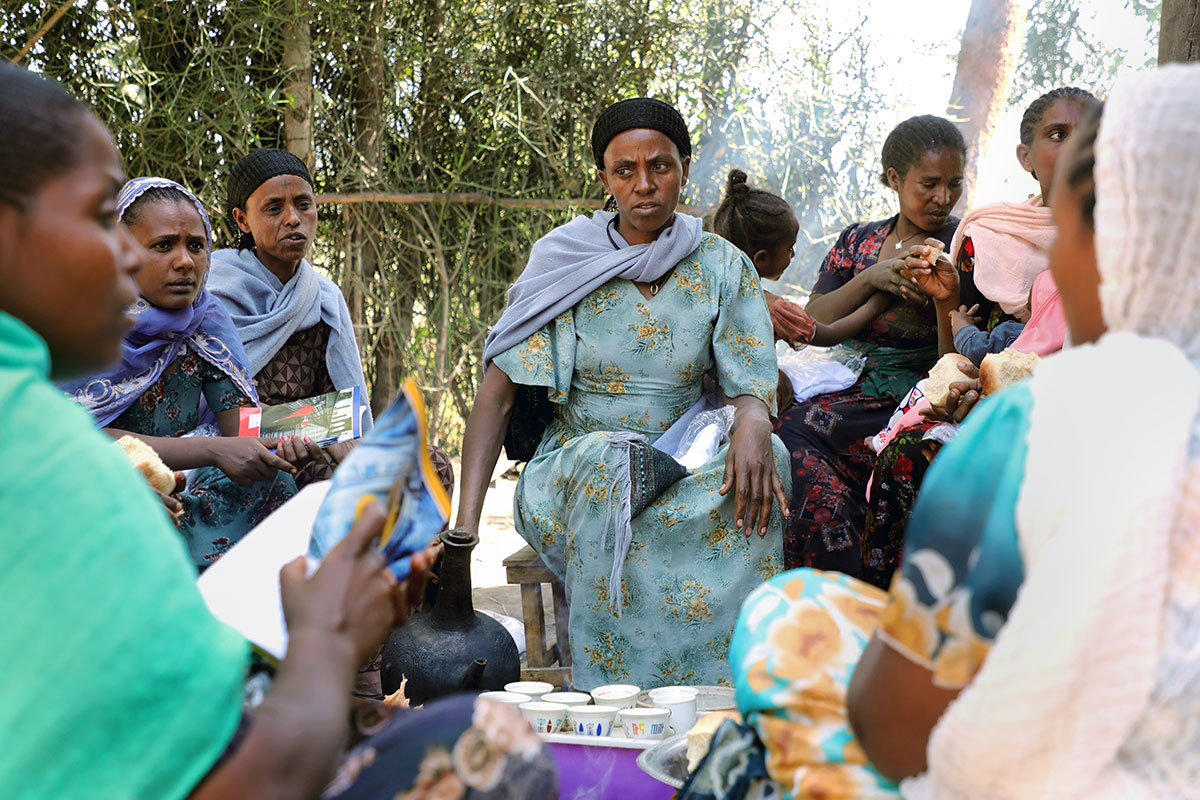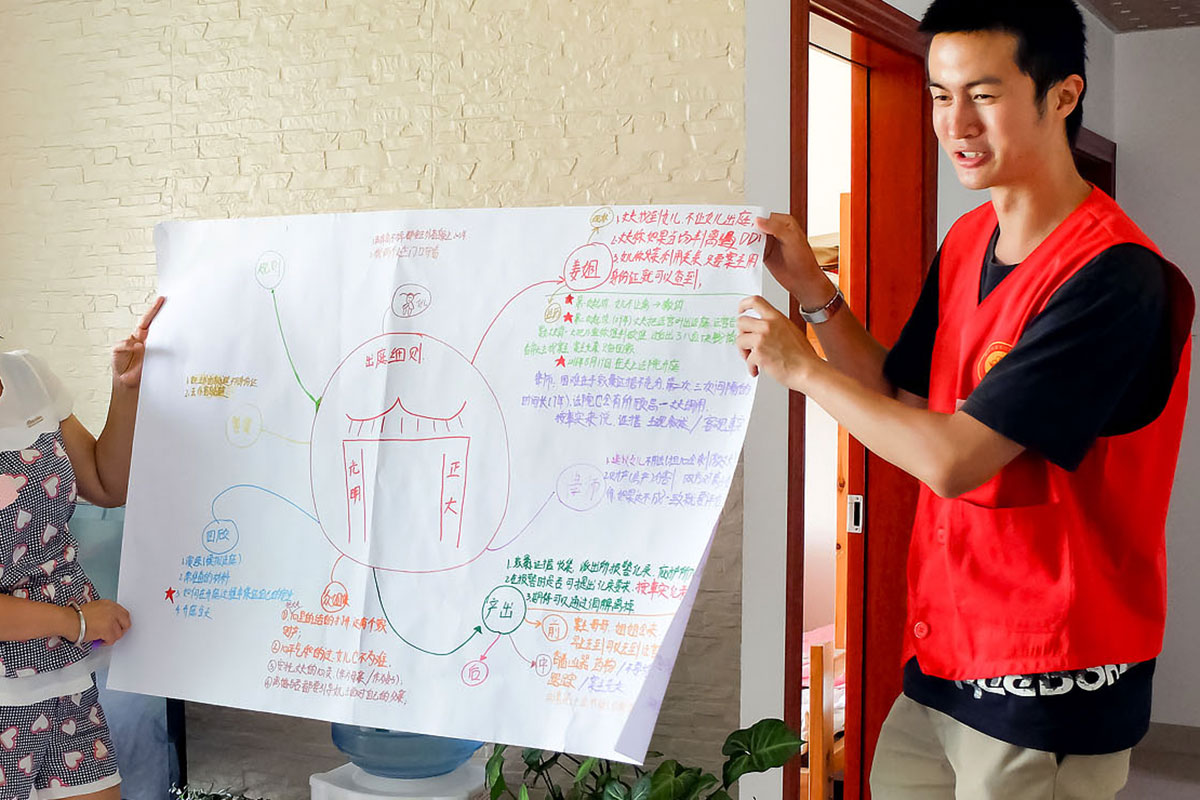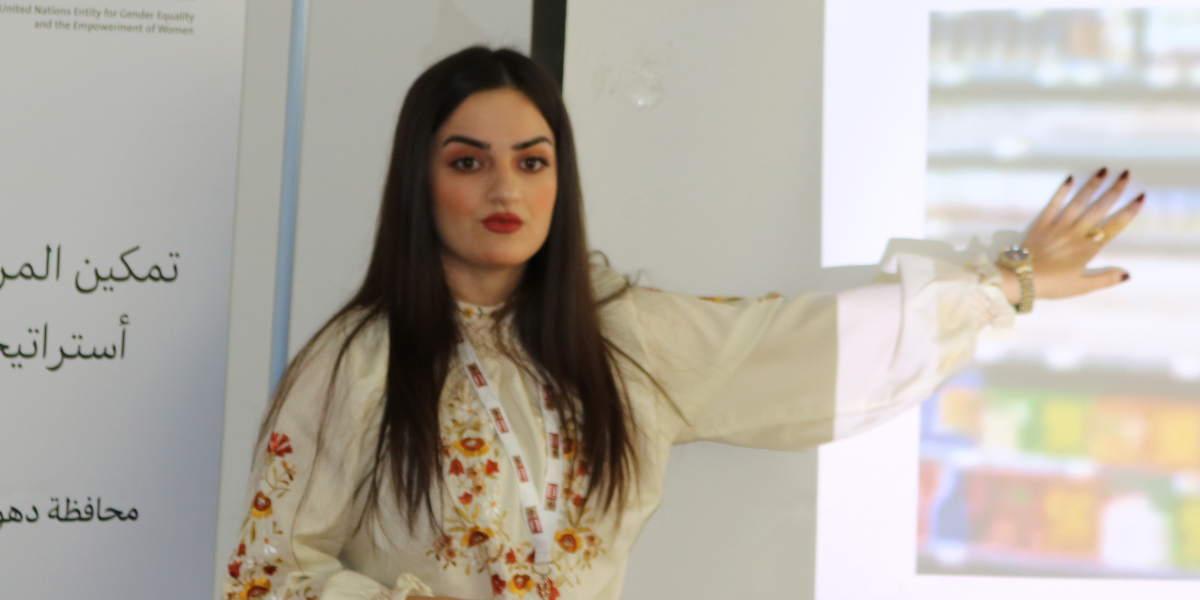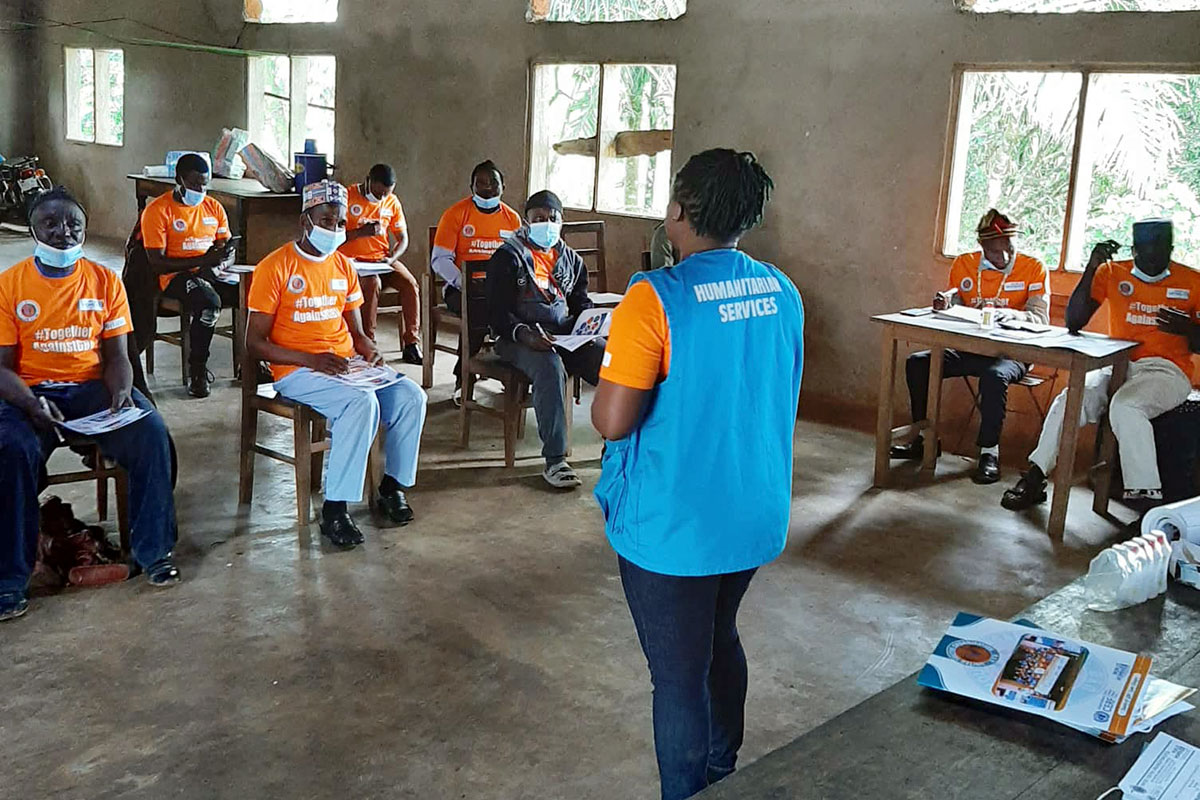
- 2022
- 2023
- 2024
Outcome 3: Positive social norms, including through engaging men and boys
More men and boys and women and girls adopt attitudes, norms and practices that advance gender equality and women’s empowerment, including those that promote positive social norms.
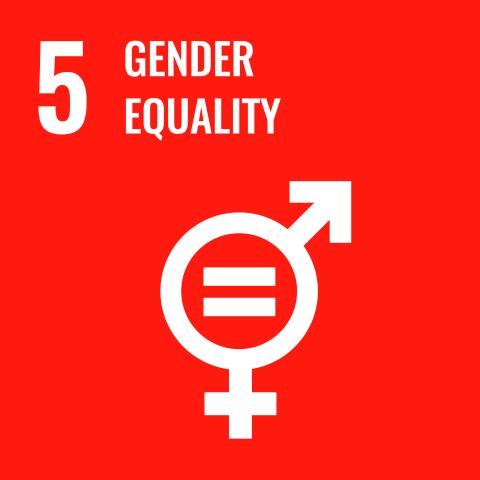
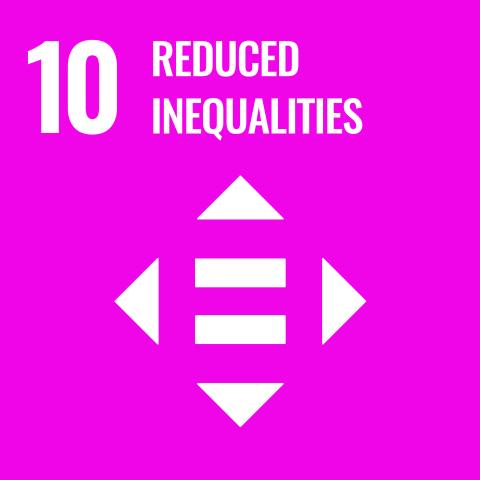
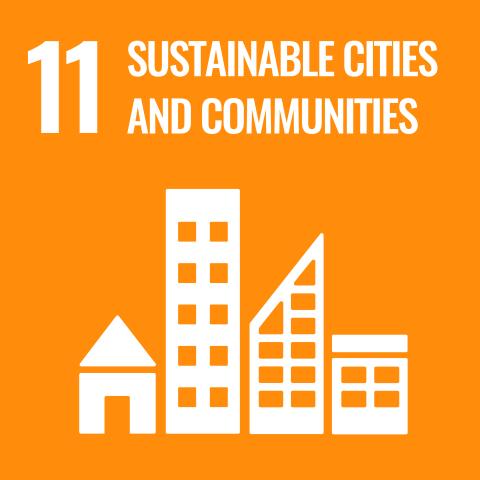
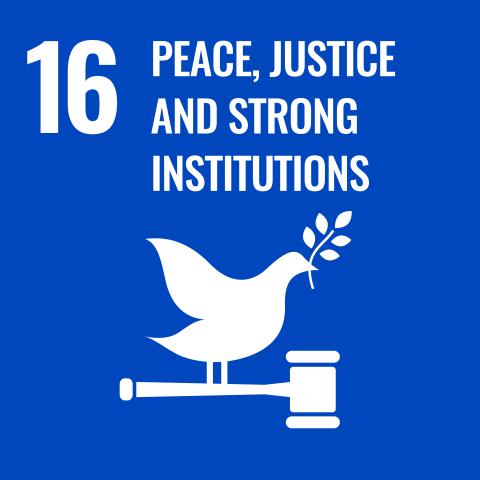
Key achievement
have adopted comprehensive, coordinated strategies for preventing violence against women, with dedicated focus on transforming inequitable gender norms
Financial flows (expenses) in 2023 towards impact areas and systemic outcomes
Find out where UN Women's resources come from, where they go and how they are changing the lives of women and girls.
come from Recipient regions Where resources go Impact areas What resources are
spent on Systemic outcomes Which results are
delivered
Outcome indicators in 2023
Methodological reviews undertaken by UN Women indicated the need to revisit the way bias and social norm change are measured. Lack of comparability of reported results called for a withdrawal of reporting on this indicator.
Complementary indicators are identified as those in the results framework that are not repeated verbatim in the results framework of another United Nations entity, but are related or provide different but complementary lenses or insights into the same issue, high-level result and/or area of complementary work, such as a Sustainable Development Goal target.
Complementary


Complementary indicators are identified as those in the results framework that are not repeated verbatim in the results framework of another United Nations entity, but are related or provide different but complementary lenses or insights into the same issue, high-level result and/or area of complementary work, such as a Sustainable Development Goal target.
Complementary




Complementary indicators are identified as those in the results framework that are not repeated verbatim in the results framework of another United Nations entity, but are related or provide different but complementary lenses or insights into the same issue, high-level result and/or area of complementary work, such as a Sustainable Development Goal target.
Complementary

Output indicators in 2023
Complementary indicators are identified as those in the results framework that are not repeated verbatim in the results framework of another United Nations entity, but are related or provide different but complementary lenses or insights into the same issue, high-level result and/or area of complementary work, such as a Sustainable Development Goal target.
Complementary



Complementary indicators are identified as those in the results framework that are not repeated verbatim in the results framework of another United Nations entity, but are related or provide different but complementary lenses or insights into the same issue, high-level result and/or area of complementary work, such as a Sustainable Development Goal target.
Complementary


Complementary indicators are identified as those in the results framework that are not repeated verbatim in the results framework of another United Nations entity, but are related or provide different but complementary lenses or insights into the same issue, high-level result and/or area of complementary work, such as a Sustainable Development Goal target.
Complementary

Complementary indicators are identified as those in the results framework that are not repeated verbatim in the results framework of another United Nations entity, but are related or provide different but complementary lenses or insights into the same issue, high-level result and/or area of complementary work, such as a Sustainable Development Goal target.
Complementary

Complementary indicators are identified as those in the results framework that are not repeated verbatim in the results framework of another United Nations entity, but are related or provide different but complementary lenses or insights into the same issue, high-level result and/or area of complementary work, such as a Sustainable Development Goal target.
Complementary

Disclaimer and notes
References to Kosovo shall be understood to be in the context of United Nations Security Council resolution 1244 (1999).

